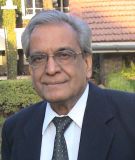Modi has enjoyed partial Emergency on India. Modi never appreciated the positive aspects of Emergency, which he could never deliver: ". Despite the draconian measures, the initial days of the Emergency paradoxically brought a sense of order that many people welcomed. Trains began running on time. Buses adhered to strict schedules. Crime rates plummeted. Government employees were punctual, and the insidious practice of bribes to expedite files seemed to vanish. Classes in schools were conducted regularly, and street hooliganism largely disappeared. Vinoba Bhave, a close associate of Mahatma Gandhi, even lauded the Emergency as anushasan parv (era of discipline). Middle-aged and elderly people often remarked that it felt as if the time of the British Bahadur had returned, an era where "sher aur bakri ek hi ghat se paani peete the" (the lion and the goat drank water from the same place), implying a return to strict but fair governance. It might seem astonishing to read this in 2025, but many at the time indeed considered such actions necessary." Nor did Modi ever face compulsions of Indira. Yet Modi imposed undeclared Emergency and favoured private capitalists leading to corruption and inequality. How Indian democracy survived the Emergency 50 YEARS OF EMERGENCY It was the summer of 1976. In Mainpuri, Uttar Pradesh, as dusk gave way to night, a gathering of people enjoyed a friendly chat at the bungalow of a prominent person in the town. Amidst the gathering, a frail man, his face partially obscured by a towel, arrived and prostrated at the host's feet. His body trembled like a dried, yellow leaf, his distress palpable. He was a washerman with a harrowing tale, from a village nearby. Tears streaming down his face, he recounted how a minor altercation a few days ago had taken an unexpected turn. He believed the matter had been settled, but he had gravely under- estimated the situation. The person with whom he had quarreled had a relative who was a police sub-inspector. A few days later, a police team raided the washerman's home. The charge: "Conspiring to uproot railway tracks with the aim of bringing about armed revolution." He struggled even to pronounce these words, terms that were entirely alien to him just 48 hours ago. Fortunately, on the day of the purported incident, he visited a distant relative. Had he been home, he would have been apprehended and incarcerated for months under the infamous Maintenance of Internal Security Act (MISA). Surprisingly, those present at the bungalow that evening were initially sceptical. They assumed he was talking through his hat, taking everyone for a ride to avoid a minor inconvenience. However, his story proved chillingly true. After intervention from the district authorities, the matter was resolved. Yet, his case was a more common occurrence than people believed. During those dark days of Emergency, approximately 35,000 individuals were detained under MISA, and over 75,000 under the equally notorious Defence of Indla Rules (DIR). Millions more were arrested under various other laws, ranging from as young as nine to over 90 years of age. The detainees spanned the entire political spectrum, with the exception of the Congress and the Communist Party of Indla. What drove the Indian system to such extremes? During the Emergency, the bureaucracy, hand in glove with the government, had turned alarmingly autocratic. Despite the draconian measures, the initial days of the Emergency paradoxically brought a sense of order that many people welcomed. Trains began running on time. Buses adhered to strict schedules. Crime rates plummeted. Government employees were punctual, and the insidious practice of bribes to expedite files seemed to vanish. Classes in schools were conducted regularly, and street hooliganism largely disappeared. Vinoba Bhave, a close associate of Mahatma Gandhi, even lauded the Emergency as anushasan parv (era of discipline). Middle-aged and elderly people often remarked that it felt as if the time of the British Bahadur had returned, an era where "sher aur bakri ek hi ghat se paani peete the" (the lion and the goat drank water from the same place), implying a return to strict but fair governance. It might seem astonishing to read this in 2025, but many at the time indeed considered such actions necessary. This week marks 50 years since the beginning of the so-called anushasan parv, and the memories of those days continue to stir me. Apparently, Indira Gandhi imposed the Emergency after the Allahabad High Court annulled her election. However, other darker forces were at play. In the 1971 general elections, she coined the slogan garibi hatao and fielded 442 Lok Sabha candidates, winning 352 seats. But she failed to eradicate garibi (poverty) and unemployment, and a disillusioned student community and labourers took to the streets to vent their frustration. A woman who was likened to Durga during the Bangladesh campaign was now seen as a failed ruler and the Emergency was the last gambit of a cornered Prime Minister. During this period, a campaign of nasbandi (forced sterilisation) was aggressively pursued, allegedly at the behest of her younger son, Sanjay Gandhi. It is widely alleged that this was an attempt to curb the growth of minority populations, with police reportedly raiding settlements of minorities and the vulnerable, forcing them into sterilisation. While isolated incidents may have occurred, I vividly recall family planning being promoted as a national campaign. Senior officials were given undeclared quotas, and they, in turn, pressured their subordinates, suggesting that those with three children should undergo sterilisation for their benefit. Tragedies such as the Turkman Gate demolitions unfolded in New Delhi, The government machinery, armed with bulldozers and a large police contingent, descended upon the Turkman Gate area in the name of “beautification". When residents resisted, they were shot at, resulting in an undisclosed number of deaths and injuries. The government never released the exact figures, and the media, already muzzled, could not effectively report on it. During that time, many newspapers were forced to get pre-publication approval from the district administration for their content. Those were truly the dark days of the Indian Republic. Pupul Jayakar, Indira Gandhi's friend, later wrote in her book how even Indira was disturbed by these aberrations. She sought counsel from the philosopher J Krishnamurti, and it was only after this spiritual reflection that she decided to lift the Emergency and call for elections, according to Jayakar. The Congress lost the general elections in 1977, and the Janata Party won office. How Indira Gandhi later returned to power is another story, but 50 years on, while remembrance of those days brings regret, there is also immense pride that despite stumbling so badly, we Indians took the fall on our chin, brushed off the dirt and not only preserved our democracy but achieved new mile stones of development over the following decades. We can all be proud of this enduring democratic and never-say-die spirit of our country- men. Shashi Shekhur is editor-in-chief. Hindustan. The views expressed are personal
more 









